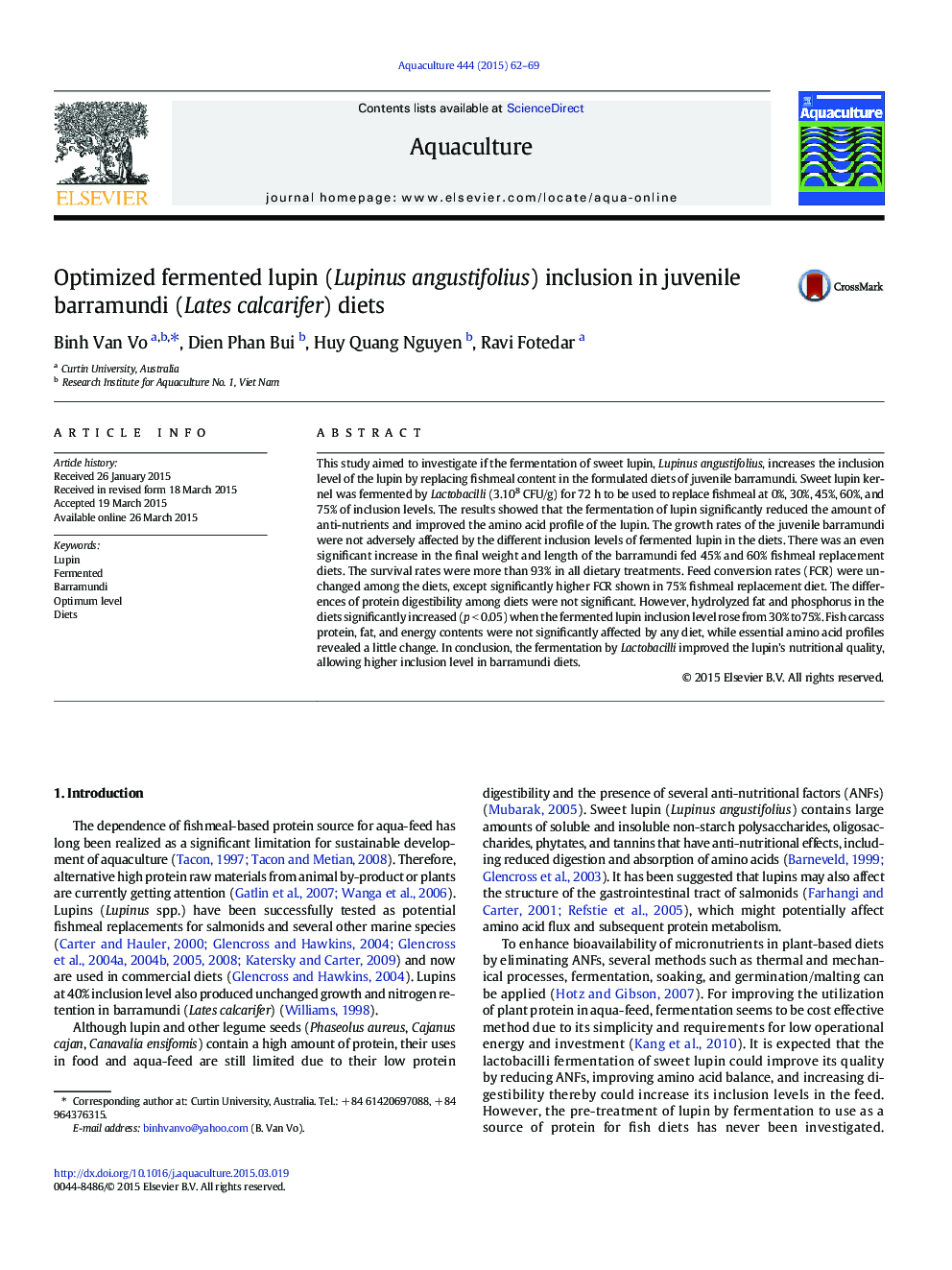| Article ID | Journal | Published Year | Pages | File Type |
|---|---|---|---|---|
| 8494643 | Aquaculture | 2015 | 8 Pages |
Abstract
This study aimed to investigate if the fermentation of sweet lupin, Lupinus angustifolius, increases the inclusion level of the lupin by replacing fishmeal content in the formulated diets of juvenile barramundi. Sweet lupin kernel was fermented by Lactobacilli (3.108 CFU/g) for 72 h to be used to replace fishmeal at 0%, 30%, 45%, 60%, and 75% of inclusion levels. The results showed that the fermentation of lupin significantly reduced the amount of anti-nutrients and improved the amino acid profile of the lupin. The growth rates of the juvenile barramundi were not adversely affected by the different inclusion levels of fermented lupin in the diets. There was an even significant increase in the final weight and length of the barramundi fed 45% and 60% fishmeal replacement diets. The survival rates were more than 93% in all dietary treatments. Feed conversion rates (FCR) were unchanged among the diets, except significantly higher FCR shown in 75% fishmeal replacement diet. The differences of protein digestibility among diets were not significant. However, hydrolyzed fat and phosphorus in the diets significantly increased (p < 0.05) when the fermented lupin inclusion level rose from 30% to75%. Fish carcass protein, fat, and energy contents were not significantly affected by any diet, while essential amino acid profiles revealed a little change. In conclusion, the fermentation by Lactobacilli improved the lupin's nutritional quality, allowing higher inclusion level in barramundi diets.
Keywords
Related Topics
Life Sciences
Agricultural and Biological Sciences
Aquatic Science
Authors
Binh Van Vo, Dien Phan Bui, Huy Quang Nguyen, Ravi Fotedar,
